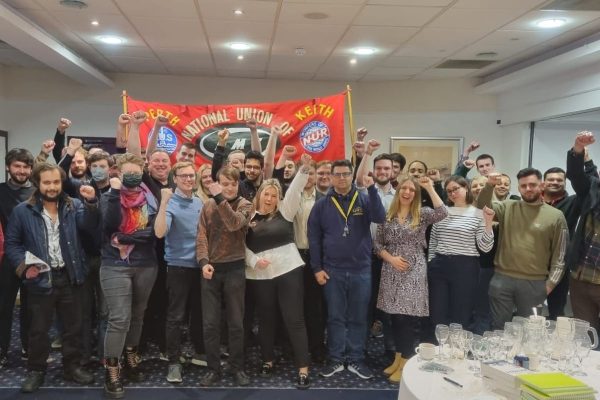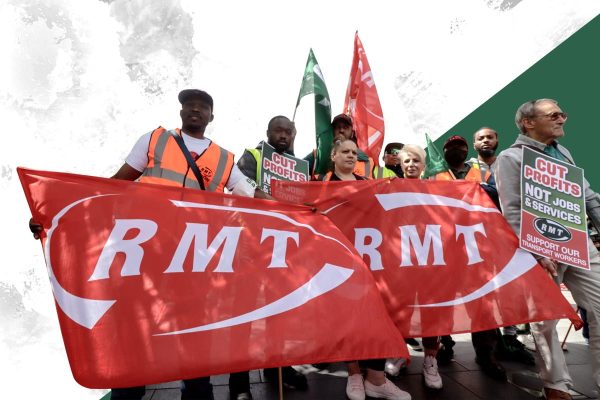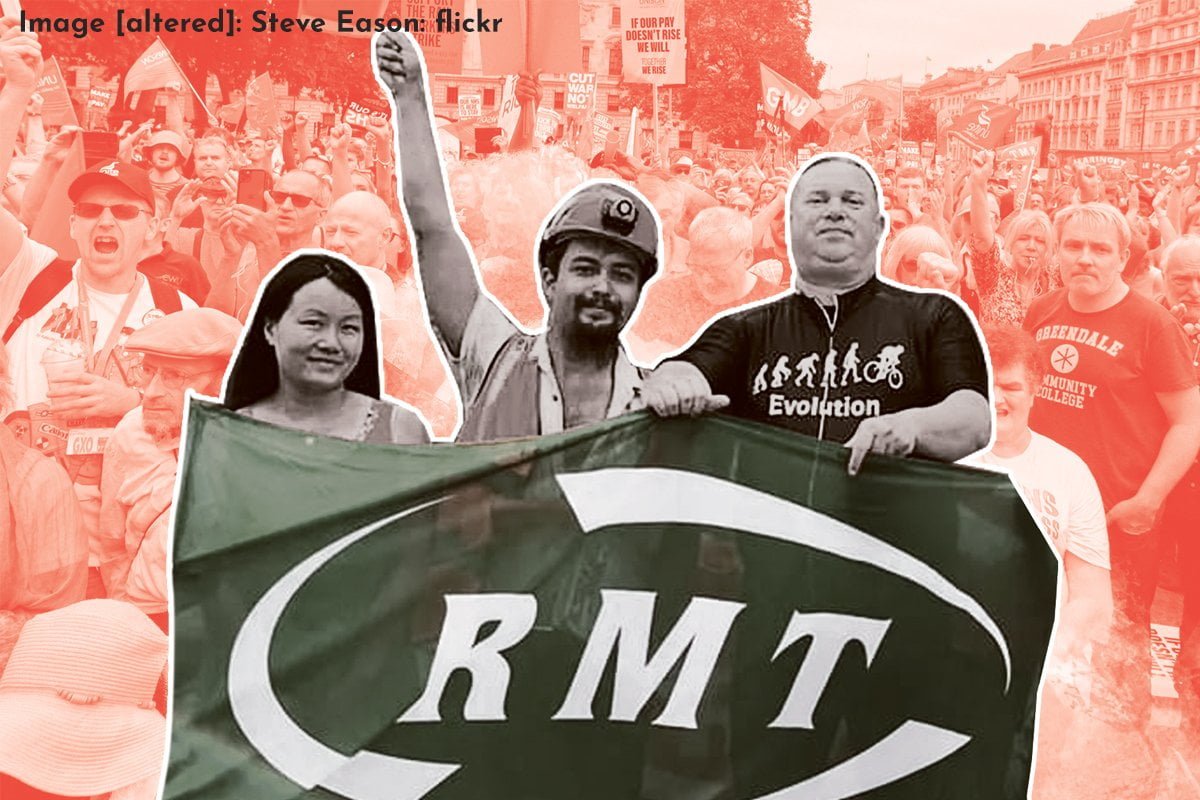This year’s RMT young members conference, held in Hastings from 24-25 February, brought together 50 activists – the highest attendance yet – in a unified and confident mood.
This reflects the enthusiasm built up after eight months of militant strike action, and the desire amongst young members to get involved in, and rejuvenate, their union.
The tone was set by RMT general secretary Mick Lynch in his opening remarks to the conference: “We are far less bureaucratic than any other union. We like to help people find their own way.”
“We should encourage that: informal leaders, pushing forward their ideas to drive the movement forward,” Lynch continued, stressing the leading role that young members can play within – and outside of – the official structures of the union.
Organisation

The conference also heard a motion that testified to this resolve.
The motion, which passed unanimously, supported the union’s “industrial organising document” – the first attempt put forward by the leadership to shake up the structure of the union and reorganise it on industrial lines.
The motion went on to request that the leadership advance concrete measures in this direction.
Speeches in support referred to low branch attendance in many areas, as well as to the resistance of some layers in the union to structural changes.
A reorganisation would therefore allow for better democratic participation of the ranks in the union.
At the 2022 young members’ conference, a motion was passed that had been put forward by a Socialist Appeal supporter. The status of this was also reported at this year’s conference, as it had since been approved by the NEC.
This called for: “The formation of cross-union committees of action, starting at a regional level, which can bring together workers organised under different unions in a joint effort to fight against [the attacks led by the Tories].”
The need for such committees of action is stronger than ever, especially given the growing level of coordinated strikes across the movement.
Education
The desire of young workers for political education was also apparent at the conference, with two workshops on economics and internationalism, which delegates enthusiastically participated in.
An energetic afternoon of left political economy @RMTYoungMember conference. Plenty of chat, bit of craic, ar aghaigh linn! ✊🏼🚩@S_O_Nuallain @RMTunion pic.twitter.com/XiO6rvZ9bq
— TrademarkBelfast (@TrademarkBF) February 24, 2023
This was complemented by workshops encouraging young members to become militant health & safety reps.
The thirst for theory and political discussion was also evident from the popular demand of the elected vice-chair, who called for more educational courses to be organised throughout the year.
On the first day of conference, Socialist Appeal hosted a well-attended fringe meeting on the lessons of the 1926 general strike.
The discussion covered the background to the general strike, with the long-term decline of British capitalism, which has continued and sharpened up until the present day.
Also covered were the betrayal of the general strike by the TUC leadership, and the way forward for the industrial strike wave today.
Of particular emphasis in the discussion was the need for a revolutionary organisation to absorb these lessons, with stress laid on the necessity of building such a force in advance of the turbulent events that lie ahead.
Dispute

Naturally, a large part of the conference was concentrated with the burning question of the day: which way forward for the national dispute on Britain’s railways?
Mick Lynch spoke on the effects that this the dispute has had on the rest of society, correctly placing it within the context of the wider class struggle. Understanding this is essential, he stressed.
“The RMT has put the big ideas back on the table; the big idea that there are two classes in society: one class which owns the means of production, and another which is exploited and pushed down by it.”
“While we’re in a dispute with the employers in the short term, we need to be looking at the long term,” Lynch continued. “We need a philosophy; a general worldview and outlook […] And this fight is not just here in the UK, it has to be international. Because we aim for something better than the exploitation, poverty, and war that they are offering us.”
The RMT general secretary also estimated that the Tory government, over the course of the strike, has now spent three to four times more on compensating the rail companies than it would cost to resolve the dispute.
The reasons for this are clear. The Tories want to break the trade unions in general, and the RMT specifically, as our union is in the vanguard of the movement.
Further days of strike action are around the corner, in coordination with other unions. This shows the way forward.
Rail workers may be spearheading the strikes, but we are far from alone, with more unions joining the fray day by day.
We should make this coordination real at a rank-and-file level. This means forming those cross-union committees, and uniting the struggles at the grassroots.
Offensive
The conference demonstrated that there is a mood of determination amongst the union’s youngest layers to win this dispute.
We must build on the momentum that is gathering in the trade union movement, and prepare ourselves for the next offensive.
In this process, we must continue sharpening and transforming our union to be in the best shape it can be to fight the battles ahead. Young members will be key to this.
The conference ended with the bold target set by the newly-elected young members’ chair, Niamh Ramsey: “I aim to bring 100 delegates to the next conference!”






